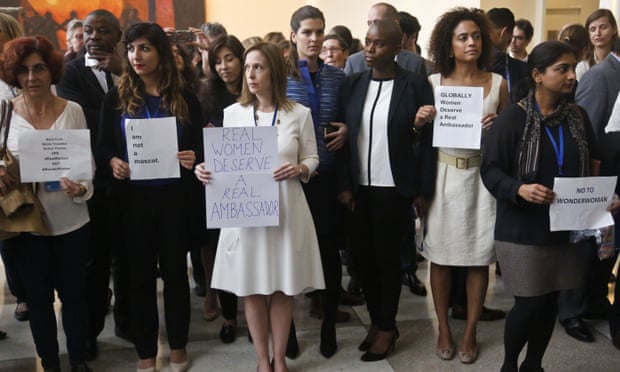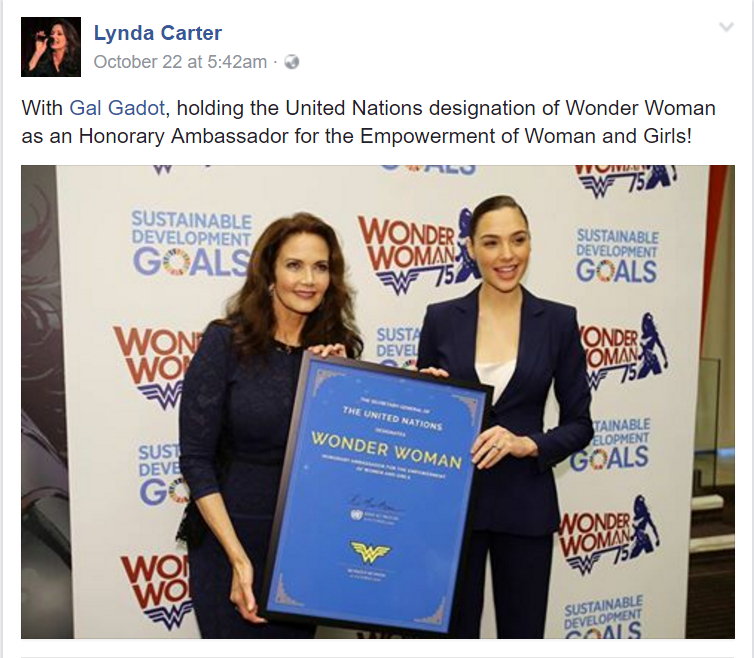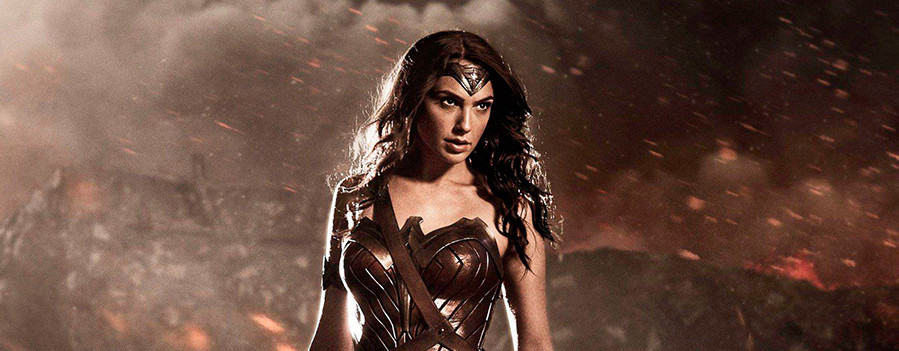Wonder Woman is known as an icon of strength, feminism and justice. Just recently the United Nations celebrated her 75th birthday and announced her as the Honorary Ambassador for the Empowerment of Women and Girls. She will work to achieve Goal 5 of the UN Sustainable Development Goals which “seeks to achieve gender equality and empower all women and girls by 2030.”
As a popular and well-known comic character, she will appeal to girls and women. Her image will be used across UN social media platforms to advocate for empowerment of women, addressing gender-based violence and calling for greater participation of women in the public life. This will be achieved via the hashtag #WithWonderWoman and the movement is backed by DC Entertainment and Warner Brothers.
Wonder Woman’s appointment came about after another man, former prime minister of Portugal Antonio Guterres, was chosen as the next secretary general. Despite many countries lobbying for a woman to be given the role, seven of the 13 candidates to replace Ban Ki-moon were women and none placed above third in the six informal polls. To combat the disappointment, Wonder Woman was appointed to a mixed response.
At the ceremony in the Economic and Social Council chamber, UN staff members protested against this, both inside the building and outside. Those inside silently turned their backs to the stage, some with raised fists. The main reason: she is too sexualised.

This silent protest originated from a petition which was created by UN staffers as a means of asking the UN secretary general to reconsider Wonder Woman. The petition acknowledges the heroine’s intended feminist message, but also states:
“…the character’s current iteration is that of a large breasted, white woman of impossible proportions, scantily clad in a shimmery, thigh-baring body suit with an American flag motif and knee high boots –the epitome of a “pin-up” girl.”

Wonder Woman’s sexualised image has brought on criticism on the toxic message it would sent to women about body image and representations, with one woman commenting to The Guardian that the American flag on her costume is akin to “pop culture imperialism”. Another anonymous staffer also spoke to The Guardian, stating she wished a real person had been named ambassador:
“For something that is this important, you need a woman or a man who can speak, somebody who can travel, somebody who can champion these rights, somebody who is able to have an opinion, somebody that can be interviewed, somebody that can stand up in front of 192 member states and say this is what we would like you to do.”
About 100 protesters also gathered in the lobby with signs stating “I am not a mascot” and “Real women deserve a real ambassador”.
“There are enough credible living models. We don’t need a mascot or a cartoon,” Shazia Rafi, former secretary general of the Parliamentarians for Global Action

Rafi also argued that the choice of Wonder Woman was “tone-deaf” at a time when women are struggling against sexual and physical abuse. She suggested real women who could have been the face of gender equality: Nadia Murad, who is the public face of thousands of Yazidi women who are in sexual slavery, or Malala Yousafzai, who fought against the Taliban and demanded girls to receive education.
As of Monday, the petition has almost 2400 signatures with a goal of 5000.

Despite the protest, the ceremony continued. Cristina Gallach, UN under secretary general for communications and public information, attended on behalf of the secretary general Ban Ki-moon. She explained the choice of Wonder Woman.
“She has been known for justice, peace and equality and we are very pleased that this character will help us reach new audiences with essential messages about empowerment and equality.”
Diane Nelson, president of DC Entertainment, declared that even comic book heroes can “inspire, teach and reveal injustices.” She also stated:
“Wonder Woman has always been a trailblazer for women’s rights and we believe she can continue that legacy by expanding and deepening the dialogue around these critical issues.”
Actress Lynda Carter who played Wonder Woman in the 70s encouraged those we protested to embrace her. Having weathered criticism for years for her role, she said, “It’s OK that not everyone agrees, but get over it and say: ‘What else is new?'”
This is not the first time a fictional character has been chosen as an honorary ambassador and that the UN has partnered with a media company. Winnie the Pooh was the ambassador for International Day of Friendship in 2010. In March, partnering with Sony Entertainment, Red, the leader of the Angry Birds mobile game was appointed as an envoy for tackling climate change.

